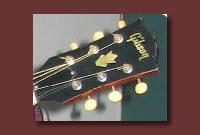 Wednesday evening at 8:00 p.m., like many other people, I wanted to be seated in front of the television to see what, if anything, might happen in Iraq when the President’s deadline to Saddam Hussein ended. However, I had to forego television viewing at eight o’clock and for a couple hours thereafter, as I had made a previous commitment to my American Legion Post to serve as a judge to select delegates to New Jersey Boys’ State. While driving to the Post, I found myself thinking, Damn, why does this have to be tonight? I’m going to have to miss something important.
Wednesday evening at 8:00 p.m., like many other people, I wanted to be seated in front of the television to see what, if anything, might happen in Iraq when the President’s deadline to Saddam Hussein ended. However, I had to forego television viewing at eight o’clock and for a couple hours thereafter, as I had made a previous commitment to my American Legion Post to serve as a judge to select delegates to New Jersey Boys’ State. While driving to the Post, I found myself thinking, Damn, why does this have to be tonight? I’m going to have to miss something important.
When I arrived at the Post, I saw the eleven boys, each having been selected by their respective high schools, who were there to seek to be among the five delegates that our Post will be sending to Boys’ State. Each boy was accompanied by at least one family member, and in some cases, three or four family members. The boys sat in the front row of chairs, with their family members seated behind them in the audience. The boys and the audience faced the front table, at which the five judges sat.
Those five who would be selected as delegates will be sent, at the Post’s expense, to a college campus in New Jersey this summer to spend several days learning about state government by actually “doing” government. The boys from all over New Jersey are broken up into “cities,” and from there, they form governments and hold city elections. The city governments gather together to form county governments and ultimately choose a state legislator and a state “governor.” Two delegates are chosen by their members to serve later in the year in Washington D.C. to represent New Jersey in “Boys’ Nation.”
Each of the boys had to select a question from a bucket full of questions, all of which had been written in advance by the judges. The questions are designed to be open ended, such that there is no “correct” answer. Some questions are easier than others (e.g. “What is your favorite subject in school and why?”), while some are a bit more weighty (e.g. “Do you favor laws that limit the amount a person may contribute to an election campaign? If so, why? If not, why not?”).
If a boy chose a question he did not feel comfortable answering, he could return that question to the bucket and choose another one, and continue choosing until he found one he wanted to answer. The bucket contained numerous slips that said, “Choose another question,” so that the audience and the judges would not know whether the boy was blowing through many questions or was picking “Choose another question” slips.
After selecting a question, each boy had to walk to a podium that faced the five judges and respond to the question extemporaneously. The boys were judged based on their speaking ability, the clarity with which they expressed themselves, and their persuasiveness.
I recall reading a survey somewhere that showed that the only thing many people fear more than death is public speaking. So, it is not surprising that all the boys were predictably nervous, particularly since they had to speak, in front of an audience of parents and their peers, to a panel of Vietnam-Era guys wearing American Legion Caps. However, each boy was supportive of the others, and all of them rose to the occasion. Judging was not easy.
Afterwards, we mingled a bit with the boys and their family members, and it was obvious that each of the boys was blessed with a caring and supportive family. While the boys and their families covered the spectrum of races and, quite likely, more than a few religions, what bound all them together was a love and respect for the United States and a desire to learn about American government by actually participating in the governmental process. It was a pleasure and an honor to meet them.
I realized that I had been very wrong earlier that evening. Sure, I missed some television news, but I got to participate in and witness a small slice of this country’s greatness. I cannot imagine a more fitting thing to have been doing at the time the deadline ended.
 Balloon Juice posted the Final Vote Count in the House of Representatives for House Congressional Resolution No. 104, Expressing the Support and Appreciation of the Nation for the President and the Members of the Armed Forces Who are Participating in Operation Iraqi Freedom. 392 representatives voted “yes,” Eleven voted “no” (none of those names would surprise you). MY Congressman (10th District, NJ) was one of the twenty-two creeps who voted “Present.” The following letter will be placed in the mail tomorrow. (Pardon the poor formatting here. It is correct in the letter.)
Balloon Juice posted the Final Vote Count in the House of Representatives for House Congressional Resolution No. 104, Expressing the Support and Appreciation of the Nation for the President and the Members of the Armed Forces Who are Participating in Operation Iraqi Freedom. 392 representatives voted “yes,” Eleven voted “no” (none of those names would surprise you). MY Congressman (10th District, NJ) was one of the twenty-two creeps who voted “Present.” The following letter will be placed in the mail tomorrow. (Pardon the poor formatting here. It is correct in the letter.)
 Wednesday evening at 8:00 p.m., like many other people, I wanted to be seated in front of the television to see what, if anything, might happen in Iraq when the President’s deadline to Saddam Hussein ended. However, I had to forego television viewing at eight o’clock and for a couple hours thereafter, as I had made a previous commitment to my American Legion Post to serve as a judge to select delegates to
Wednesday evening at 8:00 p.m., like many other people, I wanted to be seated in front of the television to see what, if anything, might happen in Iraq when the President’s deadline to Saddam Hussein ended. However, I had to forego television viewing at eight o’clock and for a couple hours thereafter, as I had made a previous commitment to my American Legion Post to serve as a judge to select delegates to 


